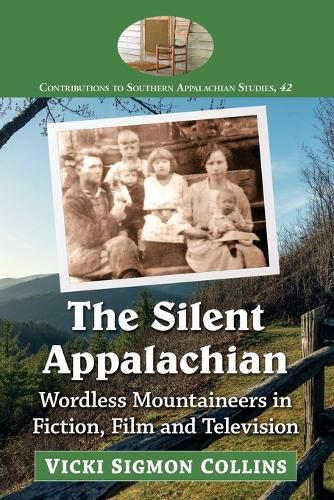Readings Newsletter
Become a Readings Member to make your shopping experience even easier.
Sign in or sign up for free!
You’re not far away from qualifying for FREE standard shipping within Australia
You’ve qualified for FREE standard shipping within Australia
The cart is loading…






This title is printed to order. This book may have been self-published. If so, we cannot guarantee the quality of the content. In the main most books will have gone through the editing process however some may not. We therefore suggest that you be aware of this before ordering this book. If in doubt check either the author or publisher’s details as we are unable to accept any returns unless they are faulty. Please contact us if you have any questions.
Appalachian literature has no small share of silent or non-discursive characters, though the reasons for their wordlessness vary. Some are mute or pretend to be, some choose not to speak or are silenced by grief, trauma or fear. Others mutter monosyllabic responses, stutter, grunt and point, speak in tongues or use idiosyncratic language such as twin-speak. They capture the reader’s attention by what they don’t say. This collection of new essays analyzes characters who are unable or unwilling to communicate orally, whose lack of voice conveys physical, mental or social hindrance.
$9.00 standard shipping within Australia
FREE standard shipping within Australia for orders over $100.00
Express & International shipping calculated at checkout
This title is printed to order. This book may have been self-published. If so, we cannot guarantee the quality of the content. In the main most books will have gone through the editing process however some may not. We therefore suggest that you be aware of this before ordering this book. If in doubt check either the author or publisher’s details as we are unable to accept any returns unless they are faulty. Please contact us if you have any questions.
Appalachian literature has no small share of silent or non-discursive characters, though the reasons for their wordlessness vary. Some are mute or pretend to be, some choose not to speak or are silenced by grief, trauma or fear. Others mutter monosyllabic responses, stutter, grunt and point, speak in tongues or use idiosyncratic language such as twin-speak. They capture the reader’s attention by what they don’t say. This collection of new essays analyzes characters who are unable or unwilling to communicate orally, whose lack of voice conveys physical, mental or social hindrance.